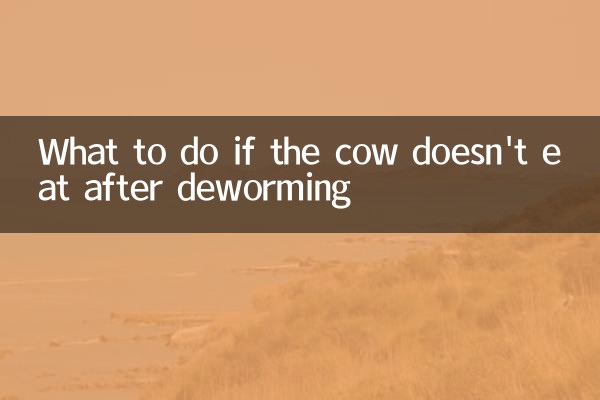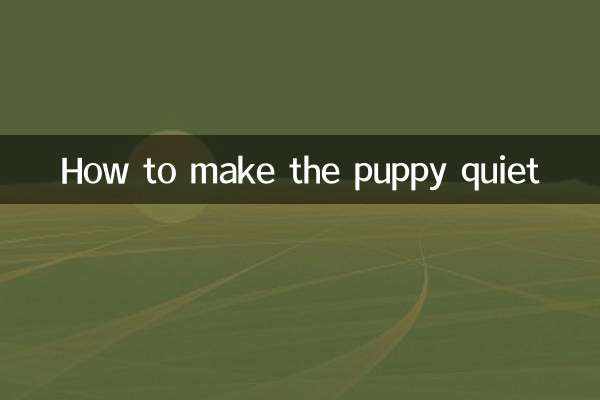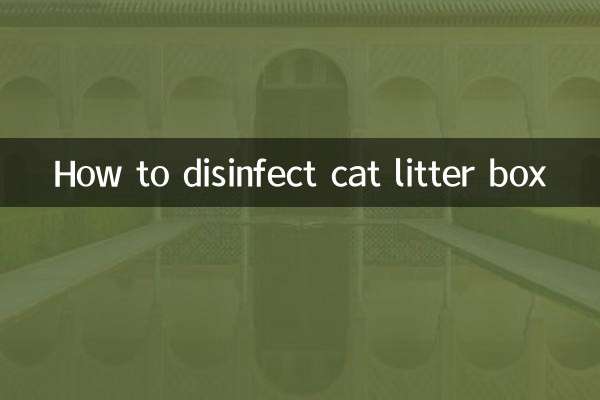What should I do if I don’t eat after deworming the cattle? ——Cause analysis and solutions
Recently, many farmers have reported that cattle have decreased appetite or even refused to eat after deworming, which has become a hot topic in the breeding field. This article will combine the hot discussions on the entire network for the past 10 days to analyze the causes and provide solutions through structured data to help farmers effectively deal with this problem.
1. Common reasons why cattle do not eat after deworming

| Cause Type | Specific performance | Incidence rate (%) |
|---|---|---|
| Drug stress response | Suffering spirit, rising body temperature | 45.6 |
| Gastrointestinal injury | Diarrhea, mucosal detachment | 32.1 |
| Parasite death reaction | Toxin release, allergies | 18.3 |
| Overdose of drugs | Neurological symptoms, ataxia | 4.0 |
2. Problem diagnosis and resolution steps
1.Observe clinical symptoms: Record the cattle's mental state, feces traits, body temperature and other key indicators.
2.Detect the residual drug of deworming: Use the rapid detection kit to determine whether the drug is overdose.
3.Implement symptomatic treatment: Select the corresponding measures according to the following table:
| Symptom grading | Processing Solution | Recovery time |
|---|---|---|
| Mild (loss appetite only) | Electrolyte supplement + probiotics | 1-2 days |
| Moderate (with diarrhea) | Mucosal protective agent + infusion treatment | 3-5 days |
| Severe (neurological symptoms) | Antidote + Veterinary Intervention | More than 7 days |
3. Preventive measures and feeding management
1.Scientific choice of antiperspirants: Select highly effective and low-toxic drugs according to the type of parasites. It is recommended that ivermectin be given at 0.2mg/kg body weight.
2.Key points for feeding before and after deworming:
| Time node | Management Measures | Things to note |
|---|---|---|
| 3 days before deworming | Increase protein feed | Improve liver detoxification ability |
| On the day of deworming | In the morning, medication is given on an empty stomach | Ensure adequate drinking water |
| 3 days after deworming | Add Vitamin B complex | Promote metabolic recovery |
4. Selected hot topic questions and answers
Q: How many days after the cattle are dewormed?
A: Under normal circumstances, you will recover in 2-3 days. If it exceeds 5 days, other diseases need to be checked.
Q: Can force-food be forced?
A: Glucose water can be irrigated for mild cases, and severe cases need to be treated professionally.
Q: Which antiworming drugs have less side effects?
A: Albendazole, fenbendazole and other benzimidazole are relatively safe.
5. Emergency handling
Contact your veterinarian immediately if the following symptoms occur:
- Body temperature continues to be above 39.5℃
- Severe watery diarrhea
- Neurological symptoms such as convulsions
Through the above systematic analysis and solutions, farmers can effectively deal with the problem of not eating after deworming cattle. It is recommended to establish a deworming record file, including information such as medication time, dose and cattle reaction, to provide a basis for the optimization of subsequent deworming plans.

check the details

check the details